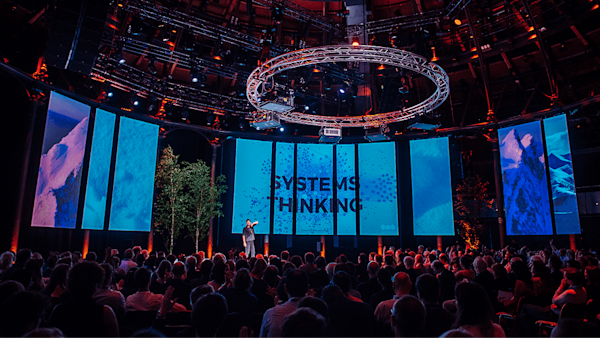We are pleased to welcome ten new members, including global businesses and emerging innovators, to the Foundation’s Network.
Our Network is the world’s leading circular economycircular economyA systems solution framework that tackles global challenges like climate change, biodiversity loss, waste, and pollution. It is based on three principles, driven by design: eliminate waste and pollution, circulate products and materials (at their highest value), and regenerate nature. network, enabling influential organisations to work together to drive systemic change.
These new members share an ambition to transform the way they do business. We look forward to supporting them, and facilitating collaboration opportunities with other Network organisations, as they strive to become more circular.
Our new members include 374Water Inc. Based in the USA, the company is commercialising an innovative approach to Supercritical Water Oxidation (SCWO). It renders wastewater sludge, biosolids, industrial wastes, and emerging contaminants such as PFAS into energy, water, and minerals that can be used as a fertiliser — recovering waste and using it as a resource. 374Water works with municipal, governmental, and industrial partners, and hopes to collaborate with Network organisations to further scale its work.
ACS Clothing, based in the UK, provides a turnkey solution that enables fashion brands to enter rental and resale markets, as well as repairrepairOperation by which a faulty or broken product or component is returned back to a usable state to fulfil its intended use. and refurbishrefurbishReturn a product to good working order. This can include repairing or replacing components, updating specifications, and improving cosmetic appearance. items — thereby keeping textiles in use. The company aims to become fully circular by 2030 and is keen to work with Network organisations, particularly fashion brands, other emerging innovators, and policymakers, to accelerate its transition.
BBB Industries, based in the USA, remanufactures automotive parts for personal and commercial vehicle aftermarkets. Reusing materials is a fundamental element of the business — taking worn parts and remanufacturing them for a second and third life.
The Fashion Institute of Technology, part of the State University of New York, brings together the disciplines of design, fashion, business, science, and technology. Its programmes foster global innovation and collaboration, and it is keen to work with Network education and industry leaders to develop circular economy research and scholarship.
The Ford Motor Company, based in the USA, works with global brands to utilise waste streams for vehicle parts and uses recycled materials in its manufacturing processes. It aims to eliminate single-use plastics across its operations by 2030 and become carbon neutral by 2050. In addition to designing, manufacturing, marketing, and servicing vehicles, Ford’s workstreams include mobility solutions, electrification, and self-driving services.
Based in the USA, International Paper provides fibre-based packaging, pulp, and paper products. Fibre is sourced from responsibly managed forests and, at end-of-use, products are recycled into new ones. The company’s 2030 goals include advancing circular economy solutions throughout its value chain and ensuring all its products are reusable, recyclable, or compostable.
US beauty and cosmetics company Mary Kay, which is set to announce its sustainability strategy later this year, hopes to work with Network organisations to implement circular economy practices — with a focus on materials sourcing.
The company behind toys including Barbie and Hot Wheels, Mattel recently announced the launch of its PlayBack programme — a takeback scheme encouraging families to return toys they no longer play with, so the materials can be recovered and made into new products. Founded in 1945 and based in the USA, Mattel’s circular economy ambitions are focused on product design and reusing materials.
Using salt and water to extract a protein from silk, which is then used to create an edible protective layer that keeps food fresher for longer, Mori’s upstream solution reduces food waste and the need for plastic packaging. Based in the USA, the company has identified opportunities to source regeneratively farmed silk. Mori is keen to collaborate on pilot projects with Network organisations specialising in the food, agriculture, and packaging industries, which can then be scaled.
Danish company Shark Solutions ApS works with end-of-life car windshields and building glass. It specialises in the separation of glass and PVB within the laminate, which can then be recycled across a range of applications. Working internationally to keep materials in circulation, the company hopes to support knowledge exchange through the Network and strengthen awareness of circular supply chain solutions.





